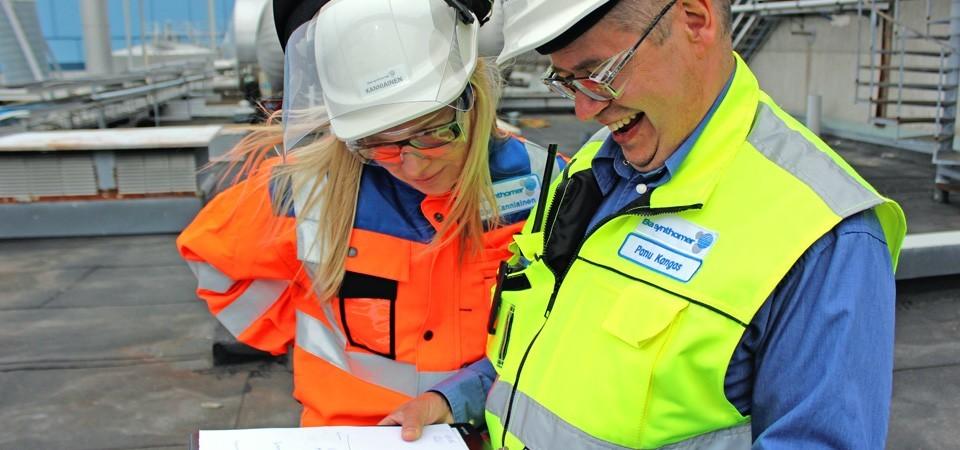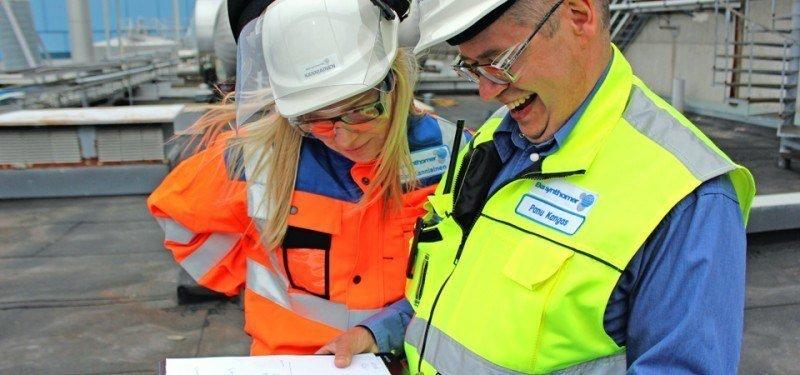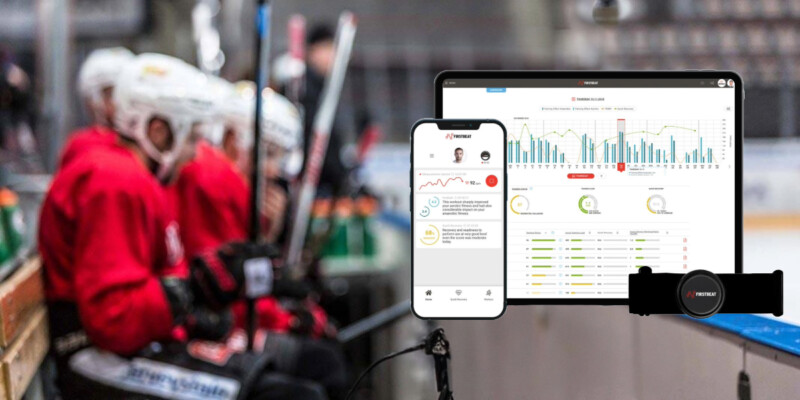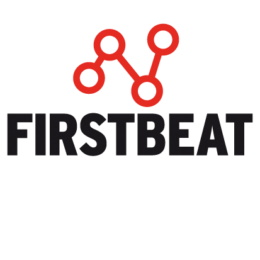
Eka Synthomer Ltd (Oulu, Finland) manufactures latex for paper and cardboard factories. The company invests in occupational safety and well-being because the employees handle hazardous chemicals.
“In November 2013, we had been working for 12 years without a single accident that would have led to a sick leave. This is an exceptionally long time, especially in this industry. In addition, our sick leave percentage has been remarkably low during the last three years, around 4 to 5 percent,” notes Tuulevi Leppänen, Financial Manager at Eka Synthomer.
The company is owned by German Synthomer Deutschland and Dutch Akzo Nobel. There are 37 staff members at the Oulu office.

Revealing a shortage of recovery
At the beginning of 2013, Eka Synthomer Ltd started a project with Precover Ltd in order to improve the productivity of their staff. Eka Synthomer did not have a specific issue that needed a solution, but they wanted to explore the effects of shift work on recovery, and thus prevent sick leaves.
The results of the Firstbeat Lifestyle Assessment were eye-opening.
“Many of the staff members, for example, thought that their recovery was sufficient during the night, but the measurement illustrated that this was not always the case. Also the daily dietary rhythm was found to be very important during shift work,” Leppänen notes.
The preliminary results suggest that sick leaves due to musculoskeletal problems decreased significantly during the project. According to Leppänen, it is still too early to draw further conclusions based on this measurement as the data was collected during a short period.
Nevertheless, the measurement revealed that many individuals had a shortage of recovery that could now be addressed preventatively.
Support in the early stage
Arto Ylitapio, CEO at Precover, notes that heart rate variability measurement is very informative as the individual cannot knowingly affect one’s heart rate variability data. The data is recorded for three days during work, leisure and sleep. Basically an individual’s ability to recover is better when heart rate variability is bigger.
“A heart rate variability measurement can reveal an overloading state several months or even a year before the symptoms become noticeable. At Eka Synthomer, there were also people whose recovery was only moderate. These cases could be identified immediately because of the measurement,” Ylitapio points out.
Ylitapio considers Precover’s program unique as it combines heart rate variability measurement with a process-driven improvement of productivity on individual basis. The project does not load the company’s management.
Savings and extended working careers
This spring Eka Synthomer and Precover started a follow-up measurement.
“We wanted to offer all of our people the opportunity to get individual coaching even though they did not have specific problems with recovery. Precover also offers guidance on nutrition and training,” Leppänen explains.
Altogether Leppänen finds that measuring and following individual stress and recovery is an excellent tool for companies. Providing support for the employees who need more recovery saves occupational healthcare costs and is advantageous for the whole society due to extended working careers.
Original publication (in Finnish): Timo Nykänen, Otavamedia
Photo: Topi Raulo
If you liked this article, you should subscribe to our mailing list
You might also be interested in

Why Nearly 50% of NHL Teams Rely on Firstbeat for Results
Since 2008, Firstbeat Technologies has played a part behind the scenes at many of the North American league’s 31 franchises.

Firstbeat Technology Helps Optimize Training and Performance of German Ice Hockey Teams
The German Ice Hockey Federation (DEB) and Firstbeat have been in close partnership for many years, with the Federation utilizing the athlete performance management platform to optimize the training and…
